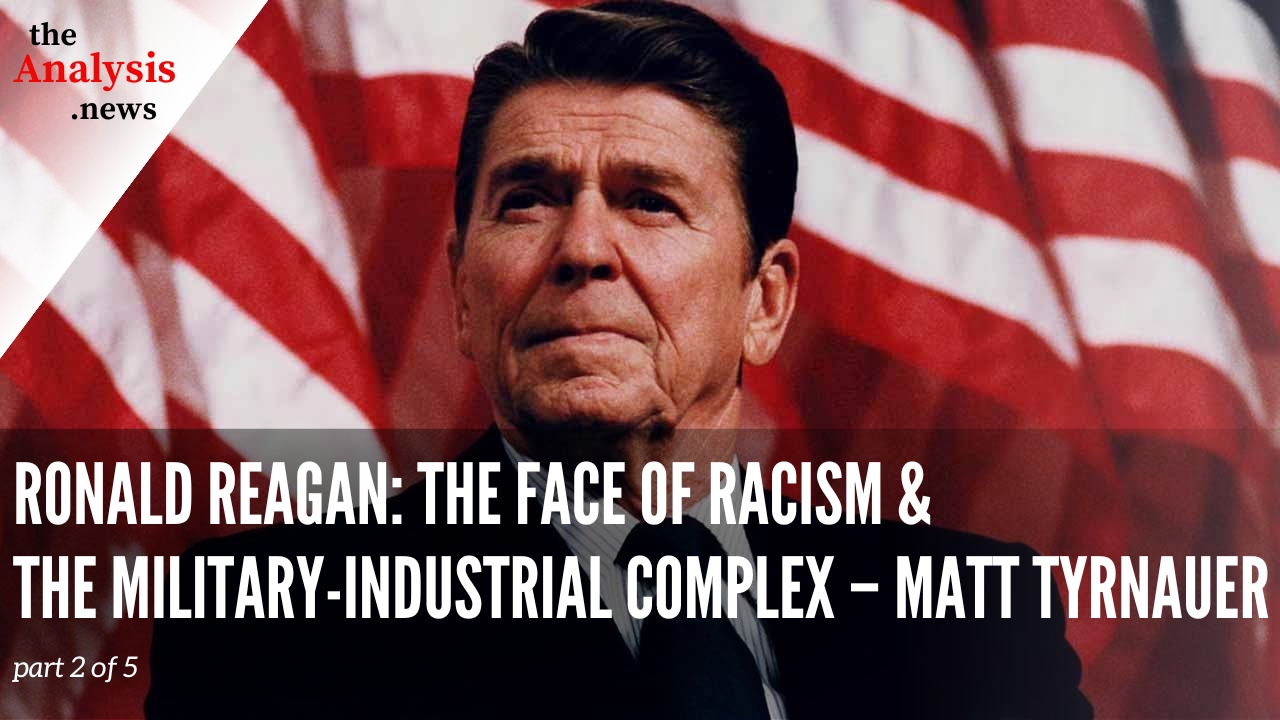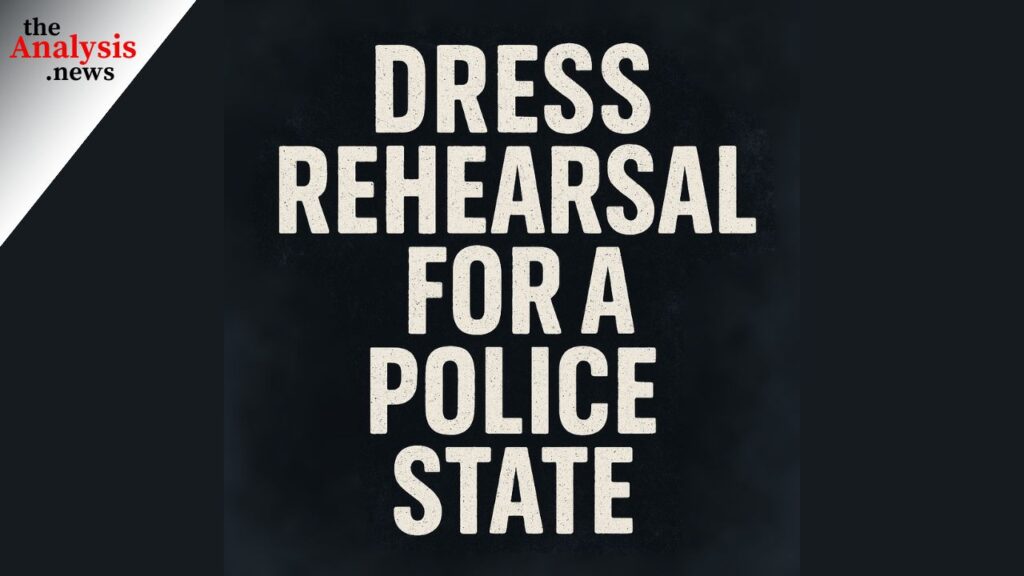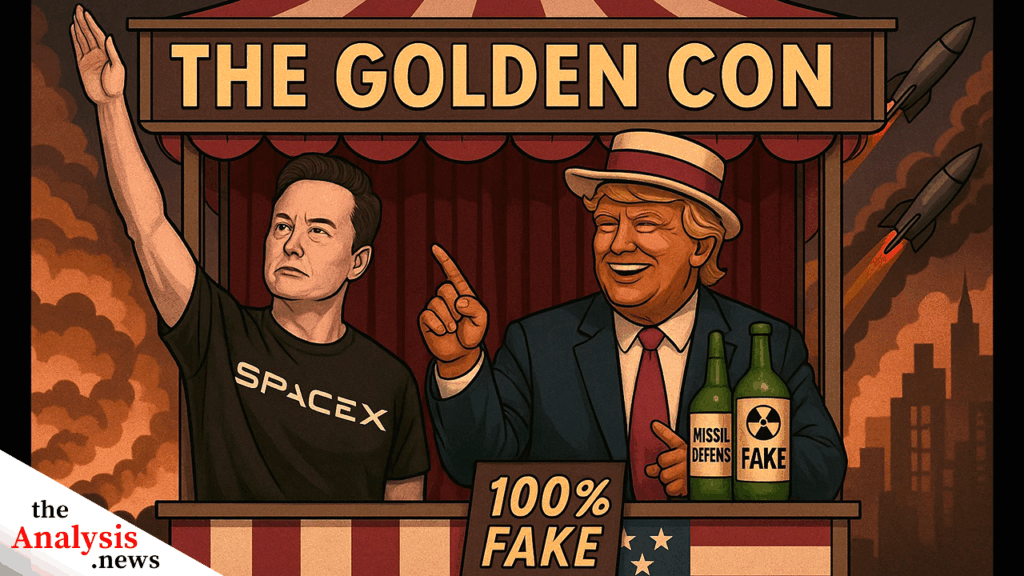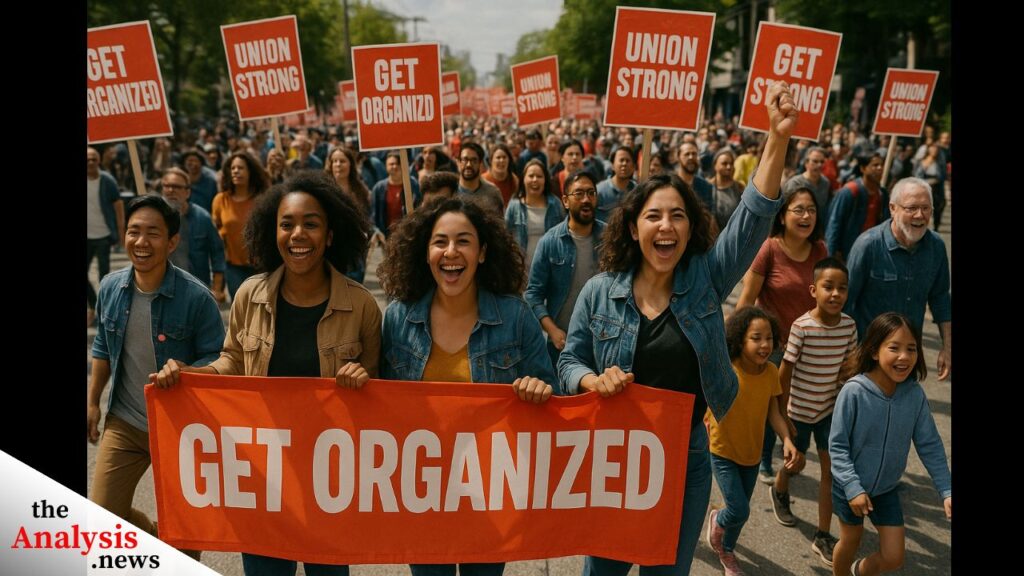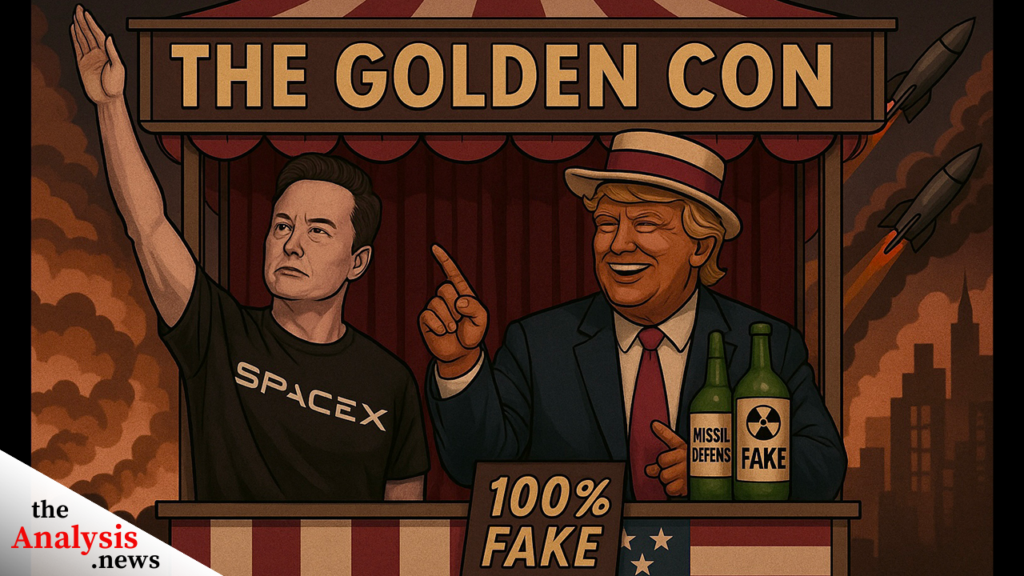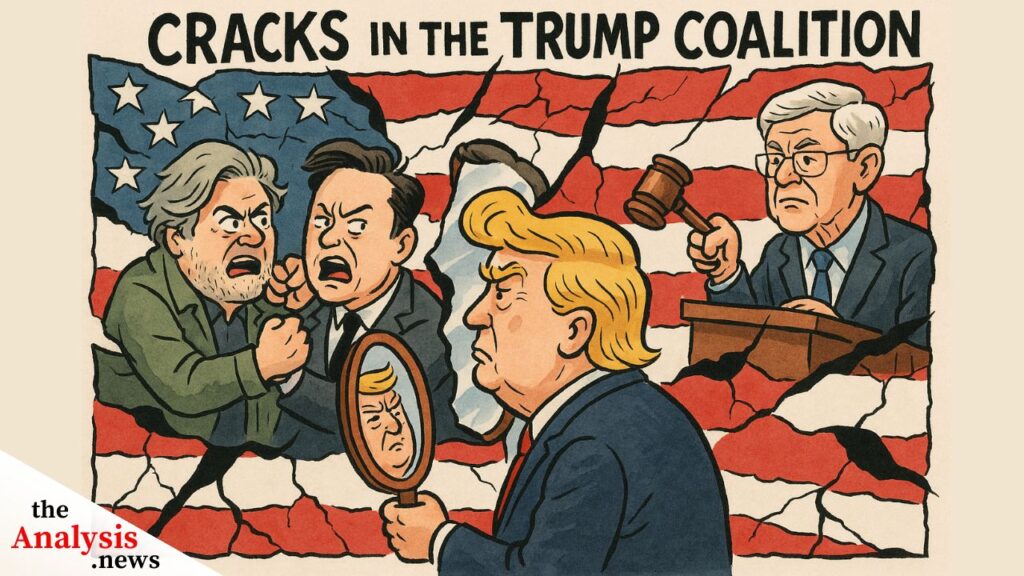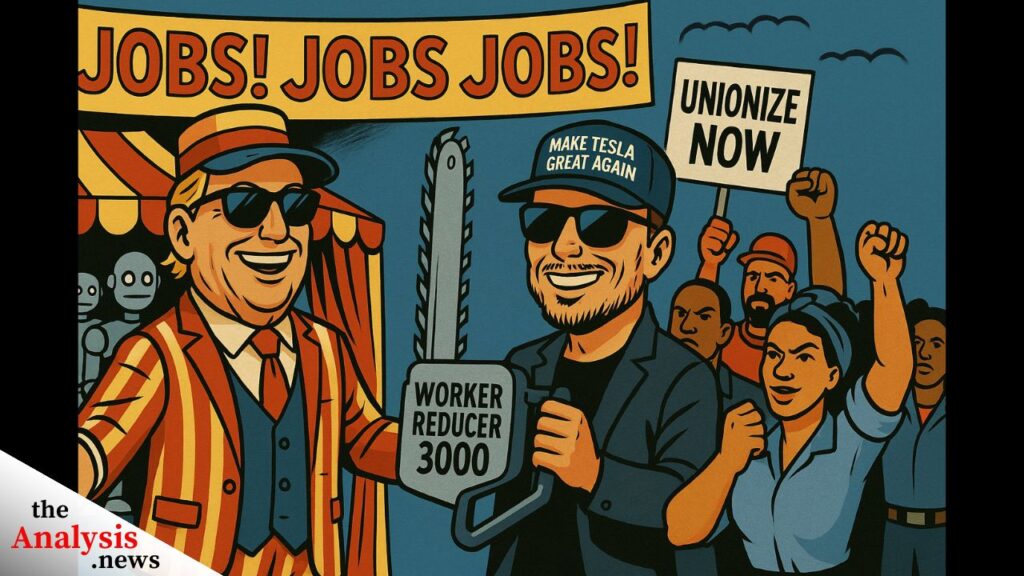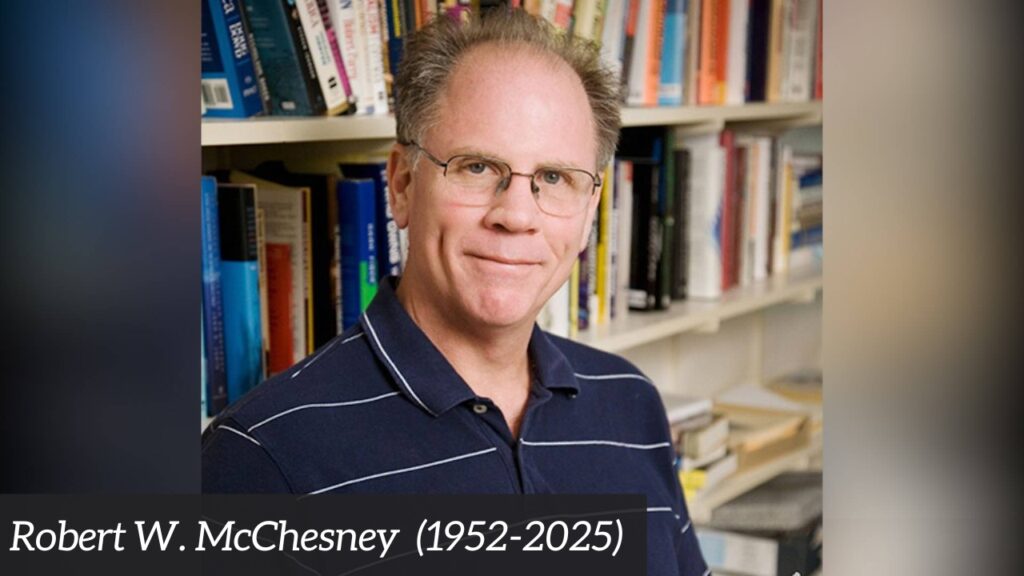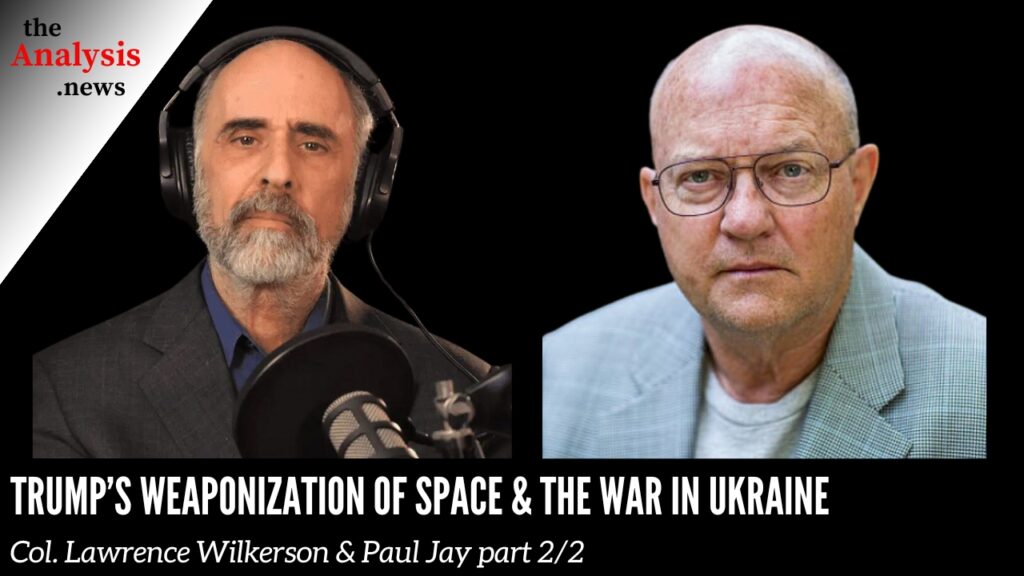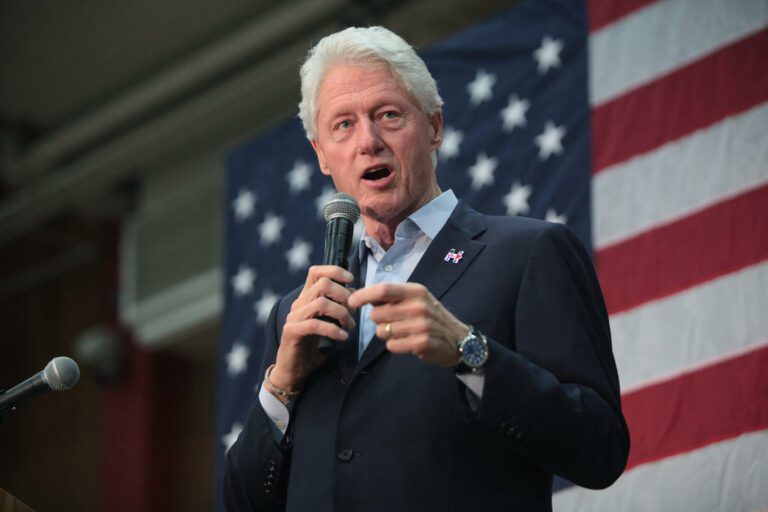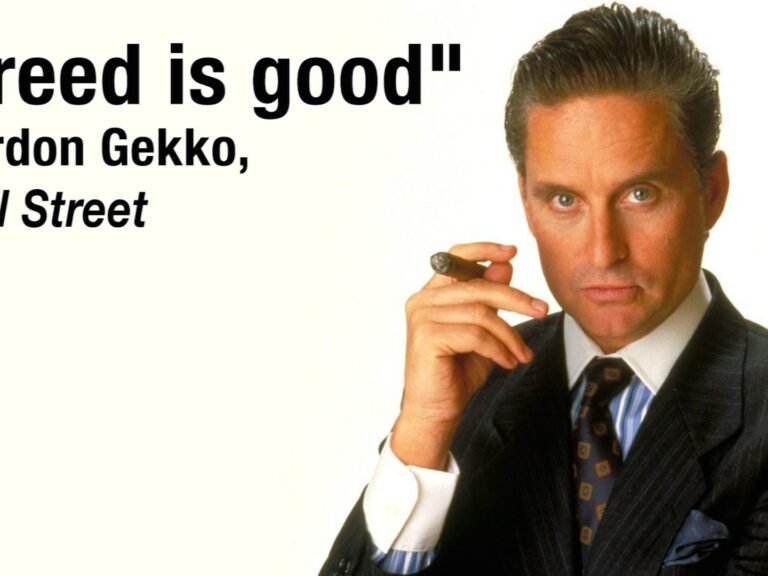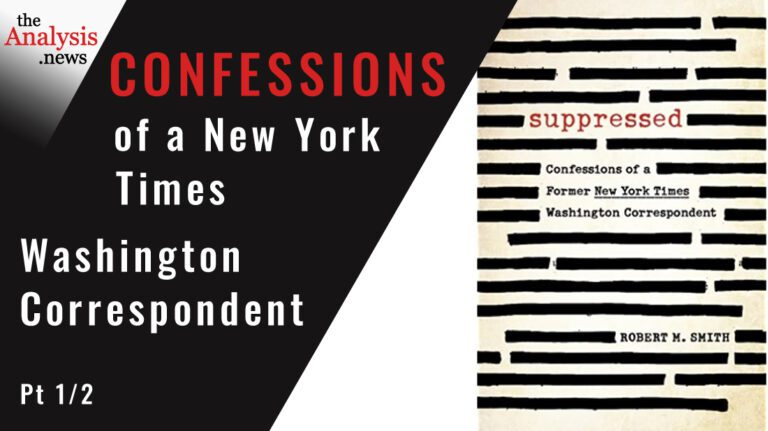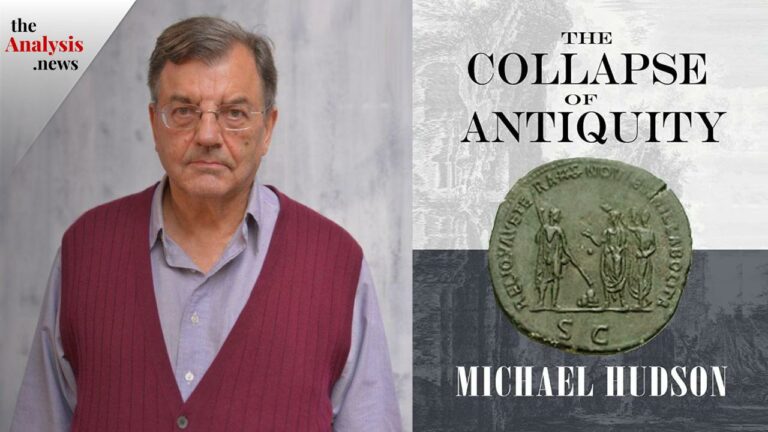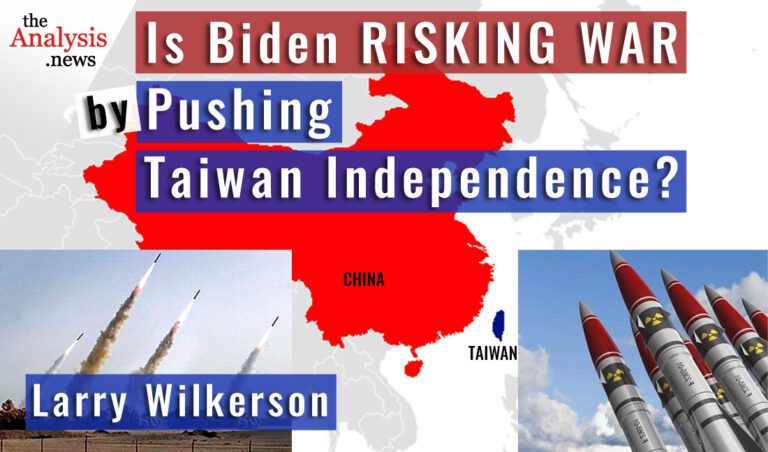Reagan understood the American psyche from within it. He used his acting skills to sell right-wing “dog whistles” and militarism. Matt Tyrnauer, director of “The Reagans”, on theAnalysis.news with Paul Jay. This interview was originally published on January 29, 2021.
Reaganism is the Model for Trumpism – Matt Tyrnauer, director of ‘The Reagans’ pt 1/5
Reagan’s Racism the Model for Trump – Matt Tyrnauer (pt 3/5)
Ronald Reagan: “Small Government” a Smoke Screen for Racism and Smashing Unions – and Host, Paul Jay (pt 4/5)
Reagan, the Media and the United States of Amnesia – “The Reagans” part 5/5
Paul Jay
Hi, I’m Paul Jay, and welcome to theAnalysis.news podcast. Please don’t forget at the top of the website, there’s a donate button and that’s the only way we keep going is when people go and donate there. Back in a second.
Now joining us is the director and writer of the Reagans, Matt Tyrnauer, who’s also the filmmaker of Valentino: The Last Emperor, which was shortlisted for an Academy Award for best documentary feature. And Where’s My Roy Cohn? Another must-see if you want to understand the political forces that gave us Trump. Thanks for joining us, Matt.
Matt Tyrnauer
Thank you.
Paul Jay
There’s a quote in the the series that impressed me. I can’t remember exactly who says it, but here it is. I think he, meaning Reagan, “has appropriated other American folktales, making it difficult at times to distinguish between the teller and the tale between this one American and America. And so that explains Reagan’s intimacy with the American psyche. He comes at it from within.”
Excerpt From The Reagans
My father was kind of a strange fellow to be president of the United States. Nothing like being in the saddle. He was a caricature out of American culture.
Matt Tyrnauer
I’m glad you singled that out because I think that that’s really one of the keys, if not the key to understanding Reagan. Is that he understood the American psyche and subsumes it at a certain point when he becomes so famous, so powerful, and then finally so influential and the most powerful person in the world as President of the United States. Gary Wills said that in the film and he wrote what I think is the greatest book ever written on Reagan called Reagan’s America: Innocence at Home, which is, of course, a play on Mark Twain’s innocence abroad.
Excerpt From The Reagans
The red light one on the camera. He was superb. We just made sure that he never got off-script. We have a responsibility, you are a liar. That was our job, to protect him, protect him from himself.
Matt Tyrnauer
Reagan was a self mythologizer from an early age, which is something peculiar about him because he really was born into a normal, rather unremarkable Midwestern family in rural Illinois. But he starts to self mythologize and added his own life story in real-time from a very early age. And this comes with all of these tropes about the Midwestern boy and the great athlete, the football player, all of these tropes of all Americanism. But when you look at them closely, you realize that he’s always tended carefully to this image.
The most famous one is being a lifeguard on the Rock River in rural Illinois, which he used to say “best job I ever had”. And he famously saved 70 some lives. I think most people think this is true about him. But the way that that story was told and retold and perfected over the years from a very early age was an indicator of Reagan’s deftness with framing himself as a kind of all-American boy and in this case, literally hero and life-saving hero.
Next from a very early age, he wanted to be a football player. He never really made it at this small college called Eureka College as a football star. But soon enough, when he was in his 20s as a male ingenue, he got cast as Newt Rockne in the film Newt Rockne, All American and portrayed a great football star and then subsumes sort of personifies this myth and then uses it all through his career. So he plays the Gipper, which was his character in the film, Newt Rockne, All American George Gipp. And then he refers to himself as a politician and later as president as the Gipper.
And the great catch-phrase from that film is “Let’s Win one for the Gipper”, which worked very well for Reagan as a politician. So you can see how he’s personifying these American myths and really selling them then as a, should be pointed out, expert in really all media. He was a radio performer and a rather successful one in the Midwest from an early age at WHO Radio as a sportscaster. And then he goes to Hollywood and gets discovered more or less after a screen test by Jack L. Warner, becomes a movie star immediately with a seven-year contract.
And then he becomes after that, a TV star as host of GE Theater. So you have someone who was really a master of every form of media in his time. And he also is a salesperson, literally, for General Electric, where he’s become a corporate shill by the 1950s. So if you take these two skills – salesperson and media star – and at the time sort of failing TV star in the 1960s, which was the state of his career, those two things combine and make him a very effective politician in the age of television which was dawning in politics at that time.
Of course, TV-star and salesperson should remind you of another politician. These are really Trump’s two major skills, which in an era of renewed media, the Internet and social media, Trump has mastered, and he took those skills and parlayed them into the White House as well.
Paul Jay
Daniel Ellsberg talks about the Cold War being essentially a subsidy for the American aerospace industry, that after World War Two these aerospace companies have become so big in military production that just going back to domestic aircraft production, they essentially would have gone bankrupt. So the Cold War narrative, the existential threat of the Soviet Union, which Ellsberg by that time knew was not true and also knew the leadership knew there was no existential threat from the Soviet Union. The whole missile gap was B.S. and so on.
But it becomes about money, it really becomes about a large amount of money-making. In the veneer covered by patriotic language and anticommunism and so on.
And it seems to me this thing with Reagan is he learns how to get on to a good thing. While he believes in this heroic character, he starts to play and he becomes a hero because people say he is. So he must be one. But it’s also very tied to his role with General Electric. And General Electric is making nuclear weapons by this point. Talk about this in the context of the military-industrial complex. There’s such a literalness to all these aspects of Reagan’s career, I mean, he’s a movie star who plays a politician and then becomes a politician.
I mean, this happens repeatedly in his career. So a certain point, Reagan becomes a corporate shill for General Electric and the face of the military-industrial complex in many ways. He’s hosting a TV series called General Electric Theater. And he’s going around as a sort of a morale booster and spokesperson for GE, both internally and externally. He goes to all those GE plants and gives pep talks. And also, incidentally, in another grand irony of Reagan’s career, he really is there to try to make sure that he’s giving an anti-union message to the GE workforce. What’s ironic about this is that Reagan was a union president who then, when it was convenient for his career, became an anti-union. And in this, of course, as part of this migration to the right, where he had become a right-wing anti-unionist, where he was a liberal union president in the previous period of his career.
A lot of this could be understood, actually, by looking at Eisenhower and the Eisenhower presidency, because it was Eisenhower who was the king of the moderate Republicans who, in his farewell message as President, tells us to beware of the military-industrial complex. And this is coming from a five-star general and he is giving us that warning. And this really is the key I think to understanding the rise of the right-wing in this country, because Eisenhower really validated the New Deal.
He didn’t reject the New Deal in his presidency. And the right-wing, which was then personified by the rise of Barry Goldwater, could not stand that. So there really then is a fissure, a split in the Republican Party, and its right-wing starts to become much more influential. And the right-wing of the Republican Party, which is an anti-Eisenhower faction personified by Barry Goldwater, is obsessed with shoring up the military-industrial complex because it’s good for business.
And as you point out, most people, most intellectuals, and most theorists who were willing to level with the American people understood that there was no missile gap and that the Soviet Union really was on an unsustainable path, and that there was no need to build all these weapons, that we were going to be perfectly fine if we didn’t have what Gore Vidal later called Perpetual War for Perpetual Peace.
Reagan and the corporate-wing, and which was becoming increasingly right-wing and reactionary of the Republican Party, became inexorably wedded to shoring up the corporate interests of the aerospace and arms industries. And they really became the bought and paid for spokespeople for that. And that became very wrapped up in Cold War rhetoric because in order to justify the purchasing of all of these weapons, conventional and nuclear, you needed to have a threat to scare the American people into ratifying all of the programs.
And Goldwater believed in that. Reagan believed in that. And it’s very interesting to look at the political backers of Reagan and where he came from. He came from California, which was very dependent in its economy on the aerospace industry. And members of his own Kitchen Cabinet were very tied into the aerospace industry.
Paul Jay
There’s a quote from someone in the series where they say Reagan had his eyes on the presidency from even before he was governor.
Matt Tyrnauer
Which I think is some evidence that he might actually have had some sociopathic tendencies. The idea that this frankly, he was not only a washed-up movie star by that time, he was a washed-up TV star too. His performing careers had a shelf lives, and they both faded. But he had a sixth sense and he had an enormous amount of confidence. And he knew how to work a room, frankly, and he knew how to appeal to his constituents and his constituents at that phase of his career, where a group of very wealthy men who were going to be his meal ticket, no two ways about it. Just as Lou Wasserman, his agent in the previous frames of his career, was the key to his success and his financial well-being. These right-wing industrialists in California were the key to what was going to be the next phase of his career. So his own son says when they’re kind of recruiting him to be governor, he went around playing a sort of aw-shucks game and saying, oh, I don’t know if I want to run.
It really is up to the people to decide. So I’ll go around and give a few speeches. And if the people want me to run for governor, well, I would never let the people down. It’s a very clever conceit really that Reagan understood. And I think it must be from a movie. It must be from either Mr. Smith Goes to Washington or State of the Union, which was a Spencer Tracy movie. All these movies that much more successful leading men carried, Reagan had seen and almost absorbed.
And he was playing these parts, but he was playing them on television, on the TV news every night at this point. And he could sense that he was selling it. It was working. And I think this is very analogous to Trump. I think the Trump, as TV news and cable news gave him more and more airtime, he could see that the soap he was selling was actually selling very well and that encouraged him. And then it becomes a self-fulfilling prophecy.
Reagan is absolutely the 1.0 of this model for success in politics.
Paul Jay
So we’re going to end it here with Reagan, and the Kitchen Cabinet has now selected him, he’s made this speech for Goldwater and he’s really about to take off like a rocket within the right-wing politics. So thanks for now for joining us, Matt.
Matt Tyrnauer
Thank you. See you next time.
Paul Jay
Thank you for joining us on theAnalysis.news podcast.
Podcast: Play in new window | Download | Embed
Subscribe Apple Podcasts | Spotify | Android | iHeartRadio | Blubrry | TuneIn | Deezer | RSS
Never miss another story
Subscribe to theAnalysis.news – Newsletter
Matt Tyrnauer is an American film director. He directed the documentary feature Valentino: The Last Emperor (2009), which was short-listed for an Oscar nomination in 2010, Citizen Jane: Battle for the City (2016), the Emmy nominated, Scotty and the Secret History of Hollywood (2017), the 2018 documentary Studio 54 detailing New York’s famed Studio 54 nightclub, Where’s My Roy Cohn? (2019), and the Showtime four-part series, The Reagans (2020).
